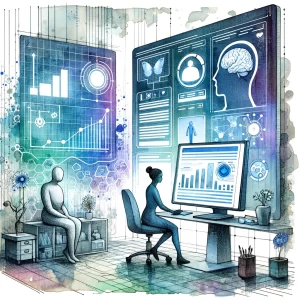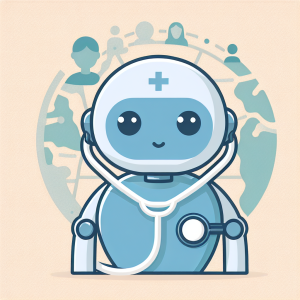
Tackling Antibiotic Resistance With AI
The world of public health is witnessing transformative changes with the advent of artificial intelligence (AI) technologies. This week, the spotlight is on the UK government’s commitment of millions to leverage AI in the battle against drug-resistant infections, also known as superbugs. Such initiatives indicate a critical shift in how we approach public health challenges globally.
The Menace of Superbugs
Superbugs pose a significant threat to global health. These drug-resistant infections can render current antibiotic treatments ineffective, leading to prolonged illnesses, increased mortality, and hefty economic costs. According to the BBC, the UK is spearheading efforts to reverse this trend by integrating AI into its healthcare strategy (BBC Health).
How AI Fits In
Artificial Intelligence offers unprecedented capabilities in identifying patterns and predicting outcomes that were previously unattainable. It allows for rapid genome analysis of bacteria to identify mutations that confer antibiotic resistance. This can potentially guide more accurate treatment decisions and spur the development of new antibiotics.
The United Nations underscores the importance of developing AI-driven healthcare systems as a blueprint adaptable to global climate change and rising health threats (UN Health).
Recent Developments
In a global context, various partnerships and collaborations drive the integration of AI into healthcare practices.
- G7 Initiatives: Nations are increasingly investing in AI research focused on health security and antimicrobial resistance as noted by The New York Times.
- WHO Guidelines: The World Health Organization is backing initiatives to promote cloud computing in healthcare, emphasizing AI as crucial for pathogen tracking and predicting resistance (UN Health).
Global Health Implications
Advancing AI technology is not without its challenges. Data privacy, cross-border cooperation, and equitable access to technology are essential considerations. Clinical deployment requires rigorous validation to ensure that AI tools are safe and effective in diverse global health contexts.
Moreover, collaborative forums such as the COP30 climate talks highlight the intersection of climate and health policy, acknowledging the role technology plays in managing rising global health threats (UN Climate Conference).
Looking Ahead
As AI continues to evolve, the future of global public health looks brighter. Nations are encouraged to invest in AI and other technologies as significant components of their healthcare frameworks. Through international collaboration and informed policy-making, the hope is not only to manage but also to mitigate the pressing issue of drug-resistant infections.



